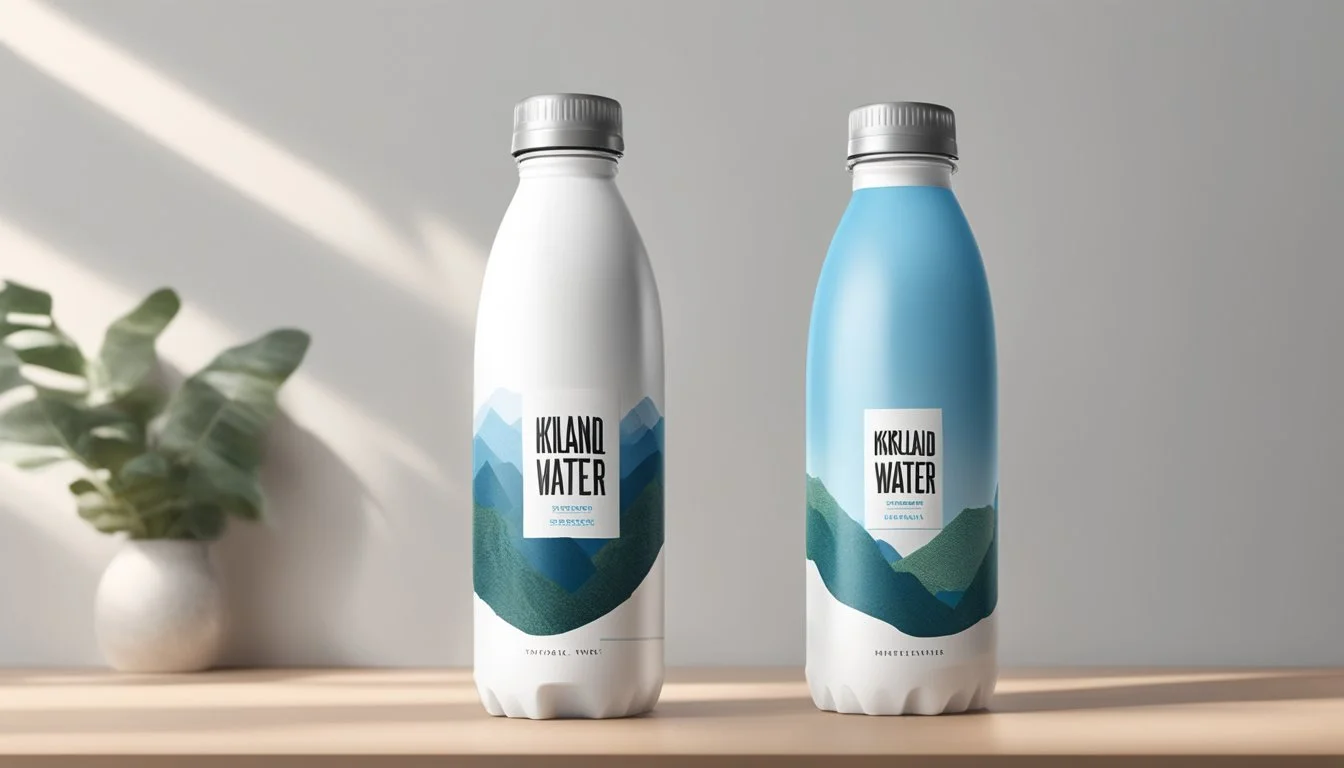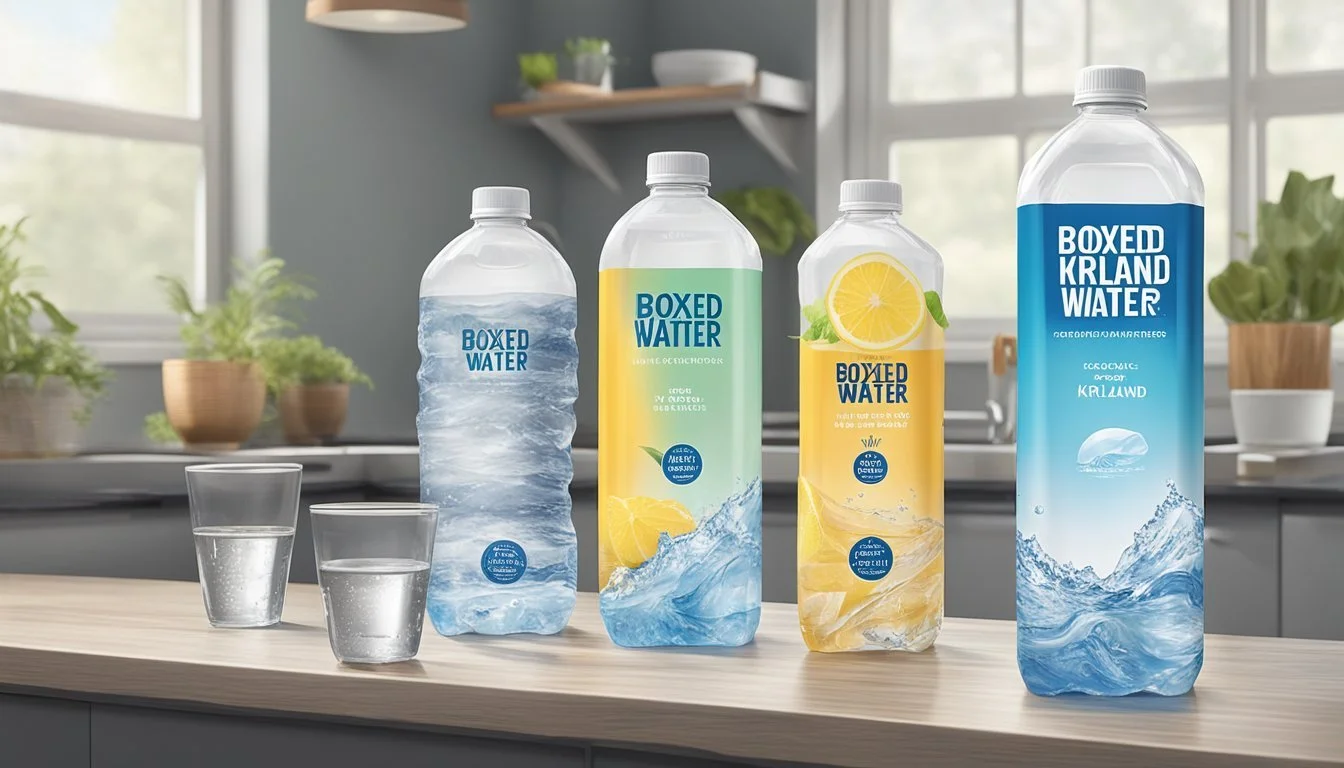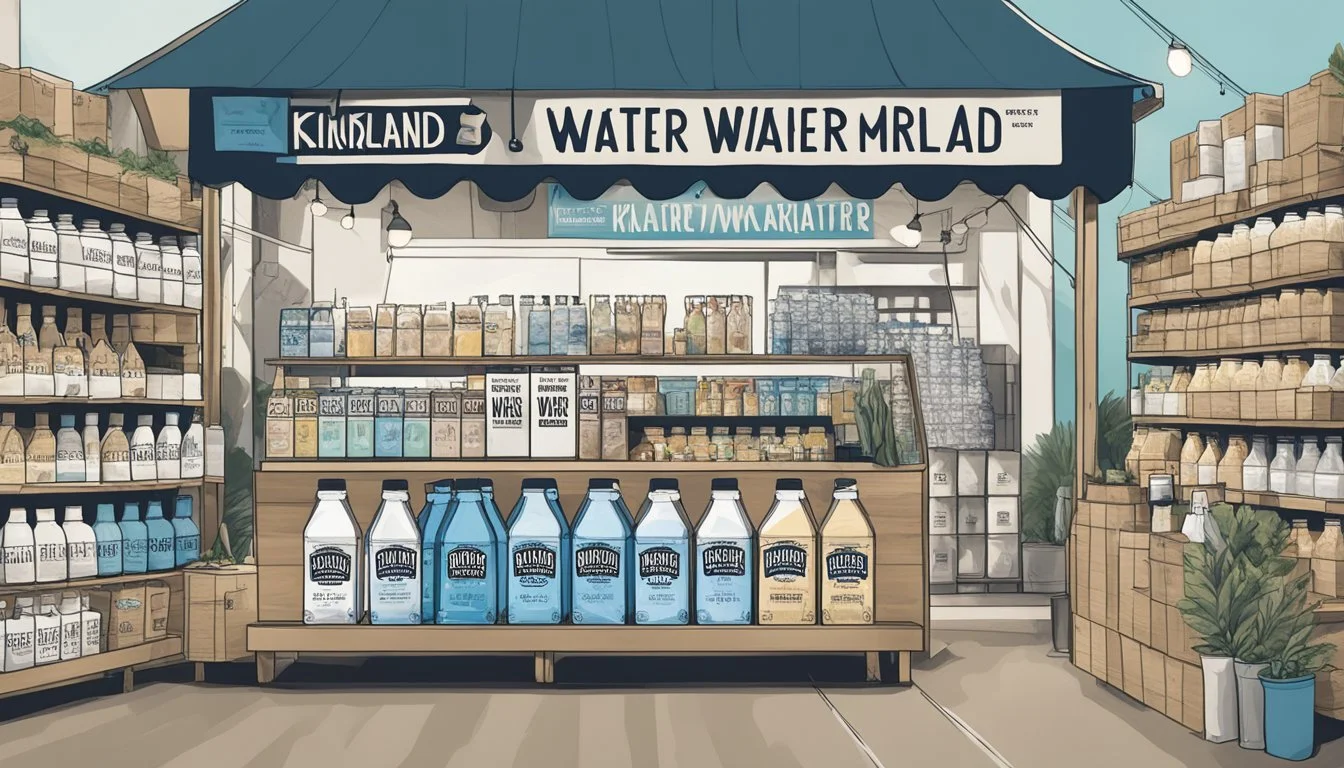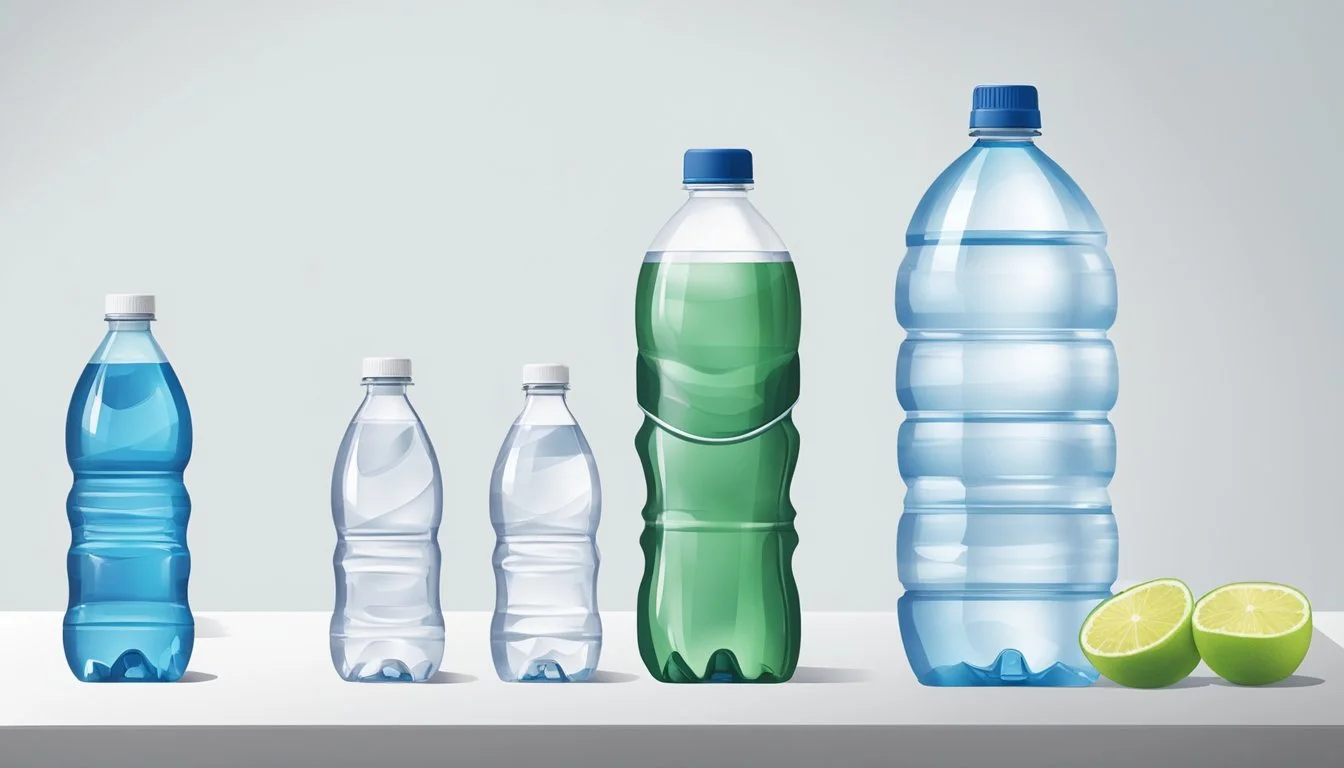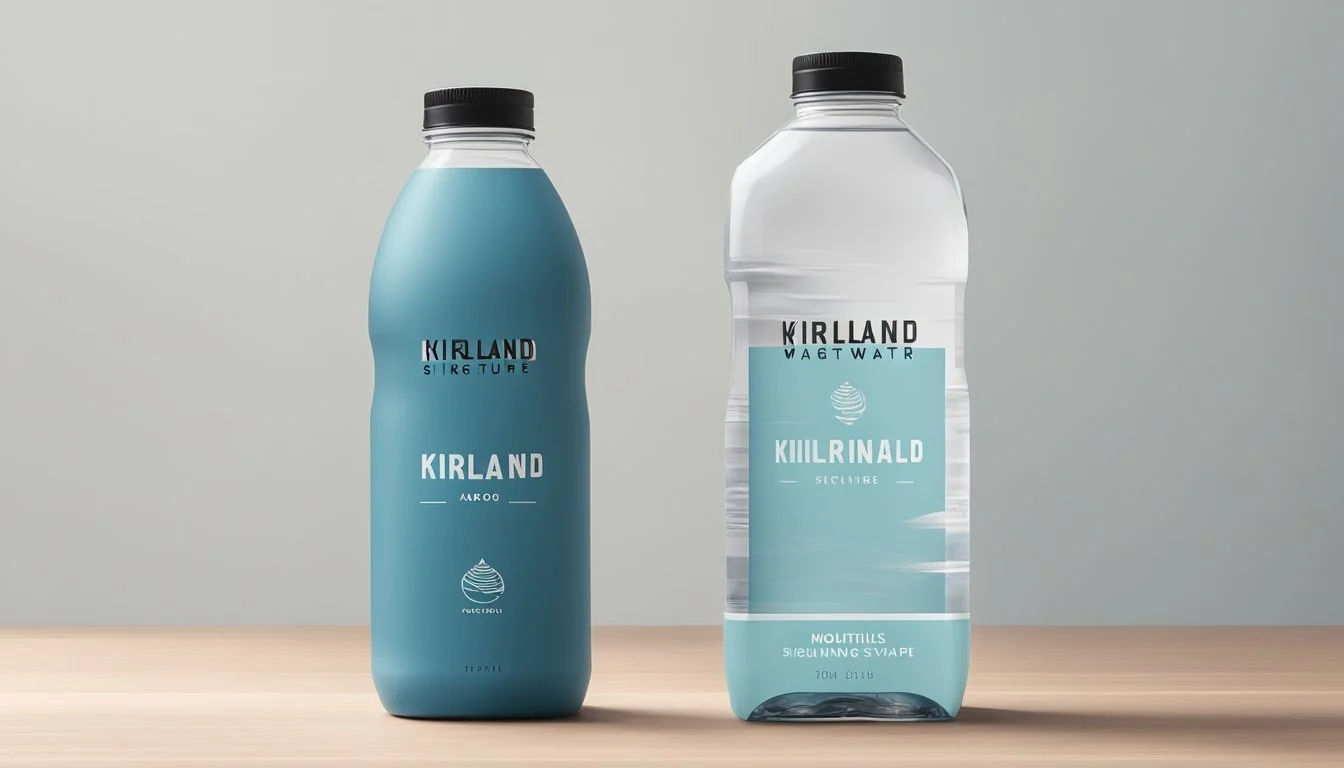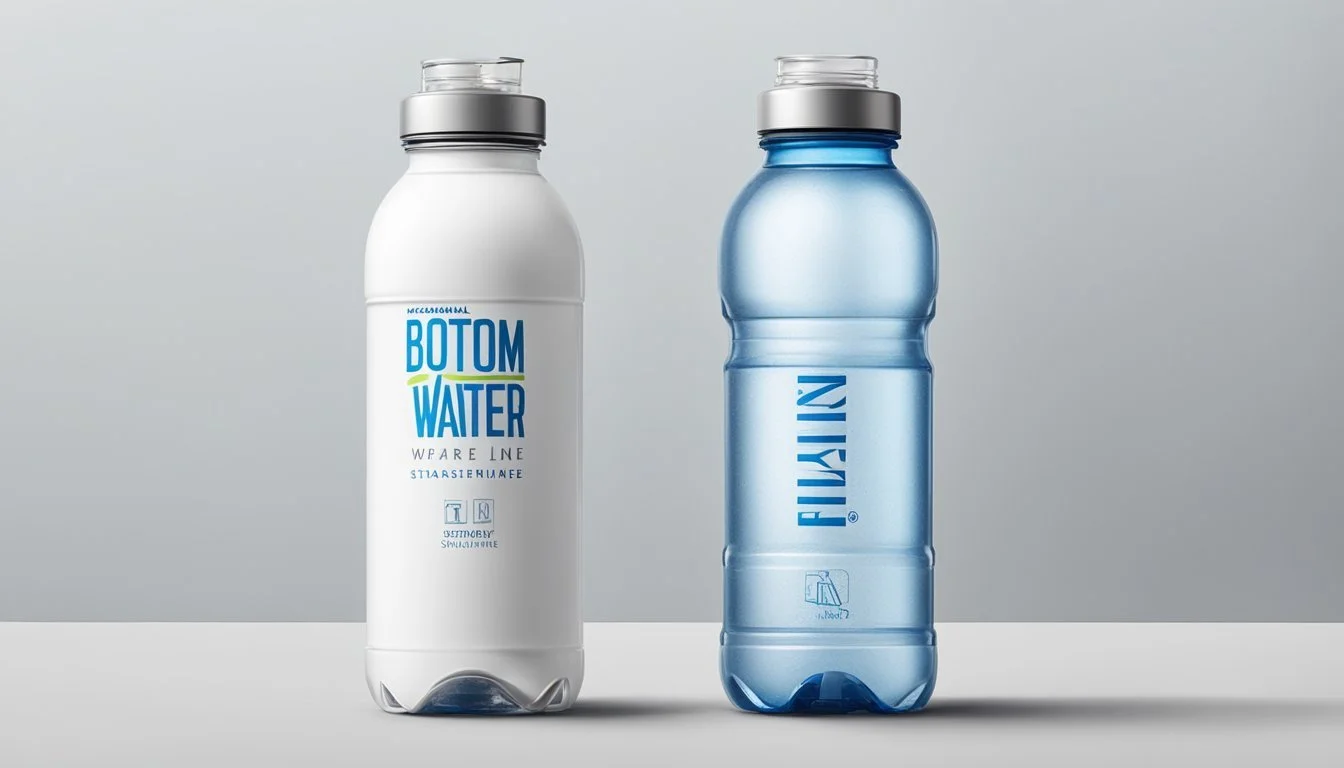Boxed Water vs. Kirkland Signature
A Clear Comparison of Bottled Water Brands
Consumers are increasingly curious about whether Boxed Water or Kirkland Signature bottled water is the better choice. Boxed Water, a company that claims sustainability as its core value, produces water contained in cartons made of sustainable paper, aluminum, and plastic film. This innovative packaging not only reduces plastic waste but also offers a refreshing taste.
Conversely, Kirkland Signature, known for its affordability and availability at Costco, offers a variety of bottled waters that are highly popular among price-sensitive shoppers. When it comes to taste and environmental impact, Boxed Water stands out for its refreshing quality and sustainable packaging. Kirkland Signature’s bottled water remains a consistent, widely available option for those who prioritize cost and convenience.
Choosing between these two options depends on what aspects consumers value more: the environmentally conscious approach of Boxed Water or the cost-efficiency and accessibility of Kirkland Signature. Both have their merits, providing viable alternatives for different needs and preferences.
Understanding Boxed Water and Kirkland Signature
Boxed Water and Kirkland Signature represent distinct approaches to the bottled water market. Each brand offers unique characteristics that appeal to different consumer preferences and environmental considerations.
What Is Boxed Water?
Boxed Water is a brand that specializes in packaging drinking water in cartons instead of traditional plastic bottles. Founded in 2009, it aims to offer a more sustainable alternative to plastic and aluminum containers.
The cartons are designed to be recyclable and are made from paper sourced from well-managed forests. This reduces the product's environmental footprint, particularly in terms of ozone depletion and global warming potential.
Boxed Water focuses heavily on environmental sustainability and often partners with organizations on reforestation and clean water initiatives. The water itself is marketed as purified and crisp, suitable for everyday consumption.
Overview of Kirkland Signature Bottled Water
Kirkland Signature is Costco's private label brand, and its bottled water plays a significant role in its extensive product lineup. Sourced primarily from U.S. springs, Kirkland water is known for its high quality and affordable price point.
The brand has a strong presence in the market, with substantial annual sales contributing to Costco’s revenue. It is often praised for its clean taste and reliable quality, making it a popular choice among consumers.
Kirkland Signature water comes in various packaging options, mainly plastic bottles. These bottles are designed for convenience and are widely available through Costco's extensive retail network.
By providing good quality water at a competitive price, Kirkland Signature maintains a solid reputation in the bottled water industry.
Environmental Impact
When comparing Boxed Water and Kirkland Signature, it's essential to consider how each product affects the environment. Key areas of focus include packaging materials, recycling practices, and carbon footprint.
Packaging Materials: Paper vs. Plastic
Boxed Water uses paper-based cartons primarily sourced from renewable trees. This reduces the reliance on fossil fuels and promotes sustainable forestry practices.
In contrast, Kirkland Signature uses plastic bottles, typically made from PET (polyethylene terephthalate). While PET is lightweight and durable, its production depends on fossil fuels.
Pros of paper cartons:
Made from renewable resources
Less fossil fuel dependency
Cons of plastic bottles:
Dependency on non-renewable resources
Higher environmental impact in production
Recycling and Sustainability Practices
Boxed Water’s cartons are designed to be recyclable, but they require specific recycling facilities that are not available everywhere. The recycling process for these cartons can be more complex due to the mix of materials (plastic, aluminum, and paper).
Kirkland Signature’s plastic bottles are more commonly recycled in standard recycling programs, making them easier to process for reuse.
Pros of Boxed Water recycling:
Potentially more sustainable materials if facilities are available
Cons of plastic bottles recycling:
Higher likelihood of being recycled due to widespread availability
Simpler recycling process
Carbon Footprint Considerations
The production and transportation of packaging materials contribute to the overall carbon footprint of both Boxed Water and Kirkland Signature.
Boxed Water’s cartons generally have a lower transportation weight, potentially reducing fuel usage. Additionally, using renewable materials can offset some carbon emissions.
Plastic bottles, on the other hand, have a higher carbon footprint due to the energy-intensive process of manufacturing PET.
Key points:
Boxed Water:
Potentially lower transportation emissions
Renewable resources can reduce carbon output
Kirkland Signature:
Higher carbon footprint from PET production
Heavier emissions related to fossil fuel usage
Health and Safety Aspects
When selecting bottled water, it's essential to consider the health and safety aspects, such as the quality of water sources, the safety of packaging materials, and the presence of microplastics and chemicals. Both Boxed Water and Kirkland Signature prioritize these elements, yet there are notable differences worth exploring.
Quality of Water Sources
Boxed Water sources its water from multiple locations within the United States, focusing on areas with high-quality aquifers. This ensures a consistent supply of clean drinking water that adheres to rigorous purification standards.
Kirkland Signature, often associated with Costco, sources its water from protected springs and municipal supplies. This brand adheres to guidelines set by the International Bottled Water Association (IBWA), ensuring safety and purity.
Both brands utilize advanced filtration and purification processes. These include reverse osmosis and UV filtration to remove impurities and contaminants, which ensure the water meets strict safety standards.
Safety of Packaging Materials
Boxed Water uses environmentally-friendly packaging made primarily from paper cartons with plant-based plastics. The materials ensure the water remains uncontaminated while prioritizing sustainability. The packaging is 100% recyclable, which reduces plastic waste significantly.
Kirkland Signature uses PET (polyethylene terephthalate) bottles that are lightweight, durable, and approved for food safety. These bottles are also recyclable, but concerns about the environmental impact of widespread plastic use remain.
Both types of packaging effectively prevent contamination. However, Boxed Water’s cartons offer an added environmental benefit, reducing the reliance on conventional plastics and limiting the potential leaching of harmful substances.
Presence of Microplastics and Chemicals
Consumer Reports' testing found PFAS chemicals in several popular water brands, including carbonated waters. Boxed Water and Kirkland Signature were not specifically highlighted in these reports, implying they may have lower levels of such contaminants.
The potential presence of microplastics in bottled water is a concern globally. Boxed Water's use of paper cartons may reduce this risk, while PET bottles from Kirkland Signature could contribute to microplastic contamination over time.
According to safety standards by the IBWA and other regulatory bodies, both brands work to minimize harmful chemicals and microplastics, ensuring the water remains safe for consumption. Potential consumers should remain aware of ongoing studies and updates regarding bottled water safety.
Taste and Personal Preferences
This section evaluates the taste profiles of boxed water and Kirkland Signature, and examines the growing consumer interest in flavored and alkaline waters.
Comparison of Taste Profiles
Boxed water brands such as Boxed Water Is Better and Just Water tend to emphasize a clean and crisp taste that appeals to many consumers. The taste of these boxed waters is often described as refreshing with a neutral pH, making them suitable for daily hydration.
Kirkland Signature offers a variety of bottled waters, including purified and alkaline options. Their ionized alkaline water has a pH of 9.5+, which imparts a slightly distinct taste due to the added electrolytes. Some consumers appreciate this for its smooth mouthfeel, while others may prefer the traditional taste of purified water.
Various consumer reviews indicate that personal preference plays a significant role in the perceived taste of water. While some find the neutral taste of boxed water appealing, others might lean towards the subtle differences offered by Kirkland Signature's alkaline water.
Consumer Trend Towards Flavored and Alkaline Waters
There is a noticeable shift among consumers towards flavored and alkaline waters. Flavored boxed waters like those from Flow, which come in options like cucumber mint and strawberry rose, offer a tasty alternative to plain water. These flavors cater to those looking to add variety to their hydration options.
Kirkland Signature’s alkaline water appeals to a growing demographic interested in the potential health benefits associated with higher pH levels. Consumers looking for a drink that balances taste and potential wellness benefits might gravitate towards these options.
Furthermore, the increasing availability of diverse flavors and alkaline options reflects a consumer trend towards personalized hydration choices. This shift highlights the importance of taste and individual preferences in the bottled water market.
Combining these elements, it's evident that both boxed water and Kirkland Signature offer unique taste experiences catered to different consumer needs.
Market Presence and Brand Values
Understanding the market presence and brand values of both Kirkland Signature bottled water and Boxed Water is critical in determining which product aligns best with consumer preferences. This includes examining their brand ethos, consumer trust, and corporate responsibility.
Brand Messaging and Ethos
Kirkland Signature, Costco's private label, emphasizes value and quality. Bottled by Niagara Bottling, Kirkland water focuses on affordability without compromising standards. This brand aims to deliver reliable products that meet everyday consumer needs.
Boxed Water is Better positions itself as an eco-friendly alternative. Their messaging centers around sustainability, using recyclable packaging and reducing plastic waste. The brand promotes a vision where convenience doesn't sacrifice environmental responsibility.
Boxed Water's ethos is more aligned with environmentally-conscious consumers. They market their product as part of a larger mission to address environmental issues, attracting those who prioritize sustainability.
Consumer Trust and Company Reputation
Kirkland Signature benefits from Costco's strong reputation for high-quality, reasonably priced products. Consumers trust the brand due to Costco's rigorous quality controls and long history of delivering value. This trust extends to Kirkland’s bottled water, making it a dependable choice for many households.
Niagara Bottling, the supplier for Kirkland water, has a broad market presence, further boosting consumer confidence. The company's extensive operations and experience in the industry add to the perceived reliability of the product.
Conversely, Boxed Water has built its reputation on its environmental commitments. Consumers often view the brand positively due to its transparent practices and dedication to sustainability. This trust is crucial for customers focused on reducing their environmental footprint.
Corporate Responsibility and Allegations
Niagara Bottling, bottling Kirkland water, has faced some controversies. Issues like alleged water sourcing practices have occasionally put the company under scrutiny. These concerns sometimes raise questions about corporate responsibility.
Boxed Water is Better actively promotes its corporate responsibility initiatives. The company engages in tree planting programs and collaborates with environmental organizations. However, some critics argue about potential greenwashing, questioning if their practices match their sustainability claims.
Despite these challenges, Boxed Water works to maintain a conscientious image. Their efforts aim to assure consumers that their purchase supports larger environmental causes, which is essential for many buyers today.
Alternatives to Bottled and Boxed Water
Consumers looking for eco-friendly and economical options may consider several alternatives to bottled and boxed water. This section explores the benefits of reusable water bottles with filtration systems, compares tap water to packaged water, and looks into emerging trends such as canned and glass bottled water.
Reusable Water Bottles and Filtration Systems
Reusable water bottles made from materials such as stainless steel, glass, and BPA-free plastic have become popular due to their sustainability. These bottles can be used repeatedly, significantly reducing plastic waste.
Filtration systems, like Brita or PUR, offer added convenience by filtering tap water to remove impurities. When used in tandem, reusable bottles and filtration systems provide a cost-effective and eco-friendly solution.
Tap Water vs. Packaged Water
Tap water is often as safe as bottled water, thanks to stringent regulations imposed by bodies like the Environmental Protection Agency (EPA).
In many areas, tap water undergoes rigorous testing to ensure it meets safety standards. Nestlé and other companies tout the purity of their bottled water, but tap water remains a reliable and cheaper alternative for everyday consumption.
Emerging Trends: Canned and Glass Bottled Water
Canned water and glass bottled water are emerging as alternatives to traditional plastic bottles. Brands like Liquid Death offer canned water, promoting aluminum cans as infinitely recyclable. Glass bottled water, too, offers a reusable and recyclable option, with brands emphasizing purity and taste.
These options address environmental concerns while providing consumers with quality drinking water.
Looking to the Future
The growing demand for sustainable packaging and eco-friendly practices is influencing the bottled water industry. Innovations in water packaging and the role of consumer choices are key areas shaping this transformation.
Innovations in Water Packaging
The bottled water industry is on the cusp of significant change driven by new packaging technologies. Among the notable advancements is the shift towards 92% plant-based cartons, used by brands like Boxed Water.
These cartons are more sustainable than traditional plastic bottles, offering a reduced carbon footprint. Additionally, companies are exploring biodegradable and recyclable materials to minimize environmental impact.
For instance, Alaska Airlines has adopted Boxed Water on its flights to reduce plastic waste. This move highlights a growing trend where corporations are opting for more eco-friendly options.
The Role of Consumer Choice in Driving Change
Consumers play a crucial role in the evolution of the bottled water market. There is a noticeable shift towards purchasing products that prioritize sustainability. This behavior encourages companies to innovate and adopt environmentally friendly practices.
Brands like Kirkland Signature and Boxed Water are responding by improving their sustainability strategies. Consumers demanding transparency in sourcing and packaging practices push these brands to continually evolve.
Moreover, informed consumers tend to influence others, further amplifying the demand for sustainable products. As a result, the market is witnessing a gradual but steady shift toward eco-friendly bottled water options.
The Bottom Line
When comparing Boxed Water and Kirkland Signature, both options cater to different needs and preferences.
Boxed Water is often chosen for its environmental benefits. It uses less single-use plastic and offers a reusable bottle option. This makes it more appealing to environmentally conscious consumers.
Kirkland Signature Water, on the other hand, is known for its convenience and wide availability. Sourced from the Rocky Mountains and bottled by the Niagara Bottling Company, it's a reliable choice for many.
Both Boxed Water and Kirkland Signature are portable, making them practical for on-the-go hydration. They also provide peace of mind with their safety and quality standards.
The environmental impact of single-use plastics remains a concern. Boxed Water's recyclable and reusable packaging offers a more sustainable option compared to traditional plastic bottles.
In terms of pricing, Kirkland Signature is generally more affordable. This makes it a go-to choice for budget-conscious shoppers without compromising on quality.
To summarize the key points:
Aspect Boxed Water Kirkland Signature Environmental Less single-use plastic Traditional single-use plastic Portability Yes Yes Safety High High Convenience Moderate High Affordability Higher price point Budget-friendly
Both brands offer distinct advantages, catering to different priorities such as environmental consciousness or affordability.


